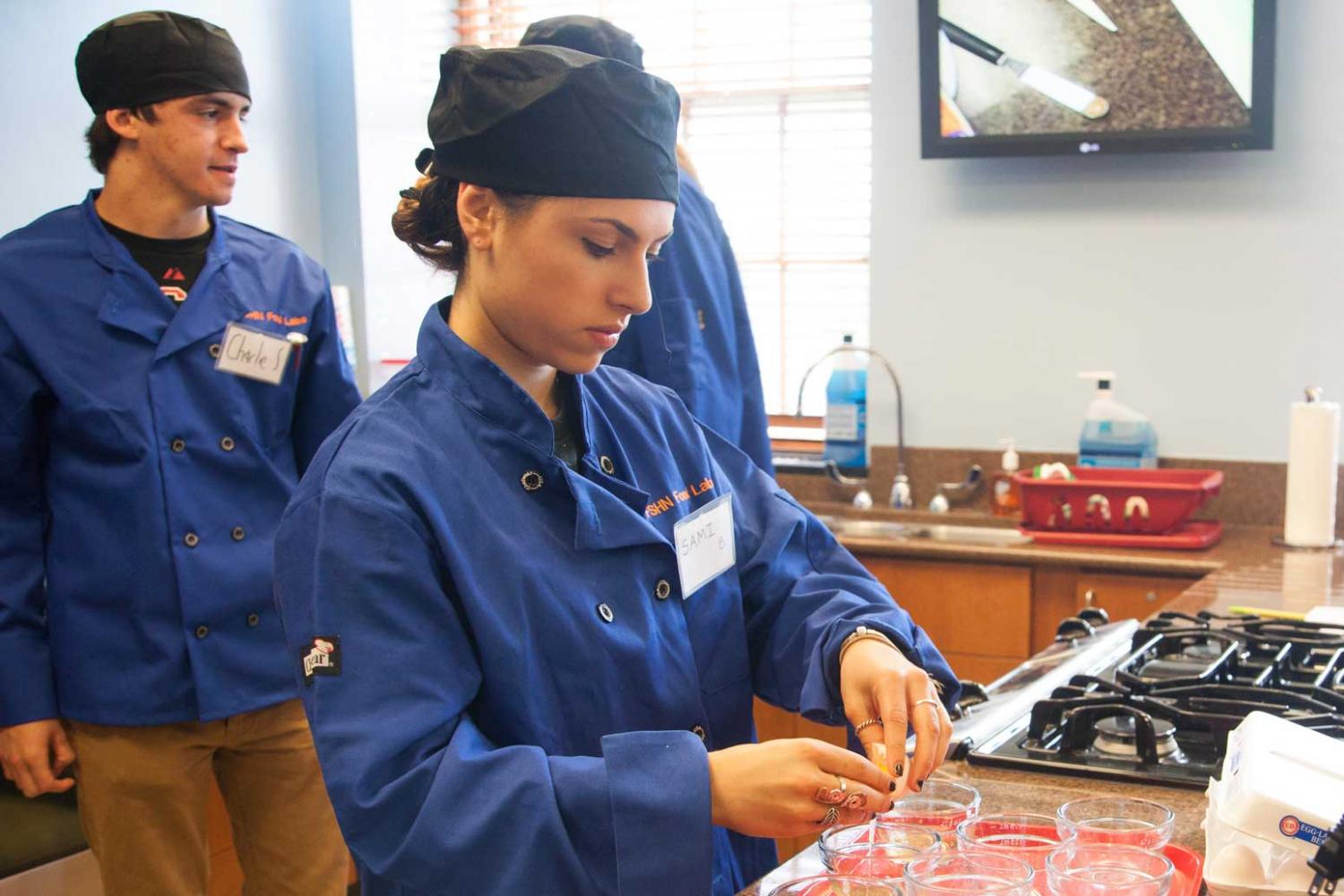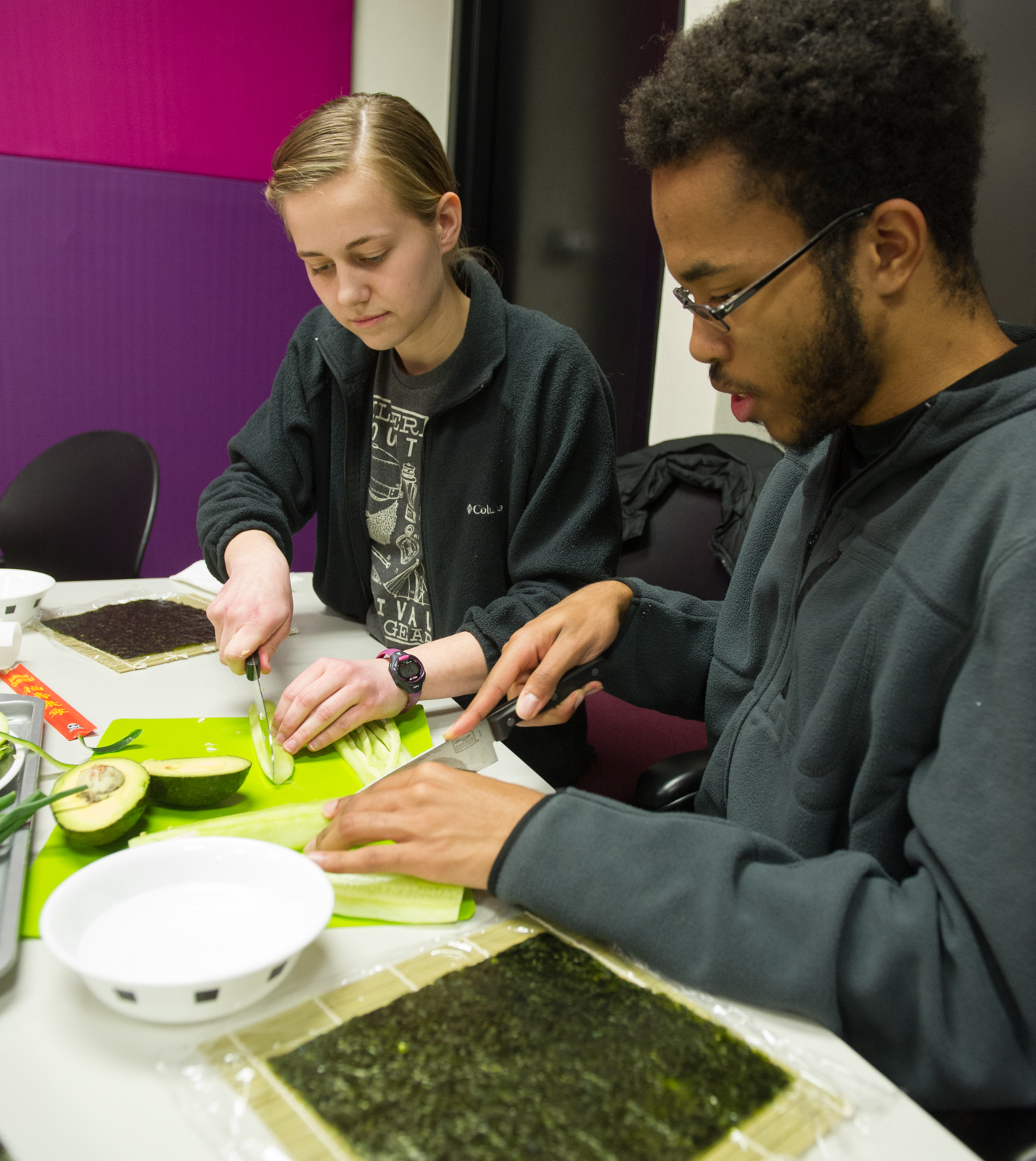Food Science
As a student in food science, you’ll study the physical, microbial, and chemical properties and compositions of food to gain a better understanding of food production and create exciting new products. With a solid foundation in the physical, microbial, and chemical makeup of food, you will ensure a safe, abundant, nutritious, and high-quality food supply.
You will have the opportunity to gain technical experience in our Pilot Processing Plant. Through innovative research and into finished products that are served in the University Dining Halls, contributing to the Illinois Sustainable Food Project. You will also get to develop and test out new recipes in our food service establishments, Bevier Café, and the Spice Box.
Our caring faculty comprises IFT fellows, University Scholars, and award-winning teachers dedicated to providing transformative learning experiences for our students. We welcome you to be part of a community committed to offering innovative solutions to feed our planet now and into the future.
- FSHN 101 The Science of Food and How it Relates to You
- FSHN 175 Science of Fermented Foods
- FSHN 193 Edible Entrepreneurialism - Feeding Ideas for the Future
- FSHN 231 Food Systems: Cacao & Chocolate
Students should consult with an academic advisor regarding course selection prior to the advanced registration period.
As graduates, food scientists advance the science of food, improve and develop safe, nutritious, delicious, and sustainable foods, and mass produces these foods that are available on the market. You’ll have the foundation to become a leader in the food, pharmaceutical, and personal care product industries, as well as in government research organizations.
- Critical thinking
- Problem solving
- Analytical decision making
- Numeracy
- Networking
- Team building, working, and managing
Career opportunities for graduates of our program are excellent. They include position titles such as consultant, entrepreneur, flavor chemist, food chemist, food inspection technician, food industry sales representative, food manufacturing supervisor, food microbiologist, food product developer, food quality analyst, food scientist, food technologist, quality assurance specialist, research and development scientist, and sensory scientist, among many others.
- Dietician, registered
- Nutritionist
- Physician; Physician's Assistant, Physical Therapist
- Senior Researc Scientist
- Corporate Dietician/Nutritionist
- Food Scientist/Product Developer
- Sensory Scientist
- Food Systems Engineer
- Senior Processing Technologist
- Marketing Specialist/Researcher
- Food Service/Human Resources Manager
- Regional Restaurant Manager
- Restaurant Owner/Operator/Partner
- Event Planner
- Food Critic
- Participating in undergraduate research
- Applying for a study abroad experience
- Utilizing resources of The Career Center
- Joining a Registered Student Organization (RSO) related to this major, such as:
- Association of Food Technologists: fosters a close relationship among the Department of Food Science and Human Nutrition students and faculty and the University of Illinois Urbana-Champaign.
- Food Product Development Club: The Food Product Development club aims to provide students with opportunities to gain experience in product development before entering the food industry. The club hosts product development competitions on campus, provides resources for entering competitions hosted by external organizations, introduces guest speakers from the food industry, and organizes various social activities. The club is open to all majors.
- The Illinois Alt. Protein Project: We're bringing the food revolution to UIUC! Alternative protein refers to food products that contain animal-free protein, and they are intended to replace foods like animal meat, eggs, dairy, etc., that are produced through conventional methods. Heard of the Impossible Burger? How about Beyond Meat? These are all examples of companies utilizing alternative protein technologies to change how we think about food. Pretty revolutionary, right? Overall, alternative protein can come from various sources, of which the main ones are plant-based, fermentation, and even cell-based (think Petri dish!). But the technology we need to grow and expand this industry is still young. Our organization, The Alternative Protein Club at UIUC, wants to take the next step and bring that change to our campus.
There are several professional organizations dedicated to Food Science. Their websites might be able to provide a glimpse into the world of Food Science. These organizations include the Institute of Food Technologists (IFT, https://www.ift.org/) and the Chicago Section of IFT: https://www.chicagoift.org/.

